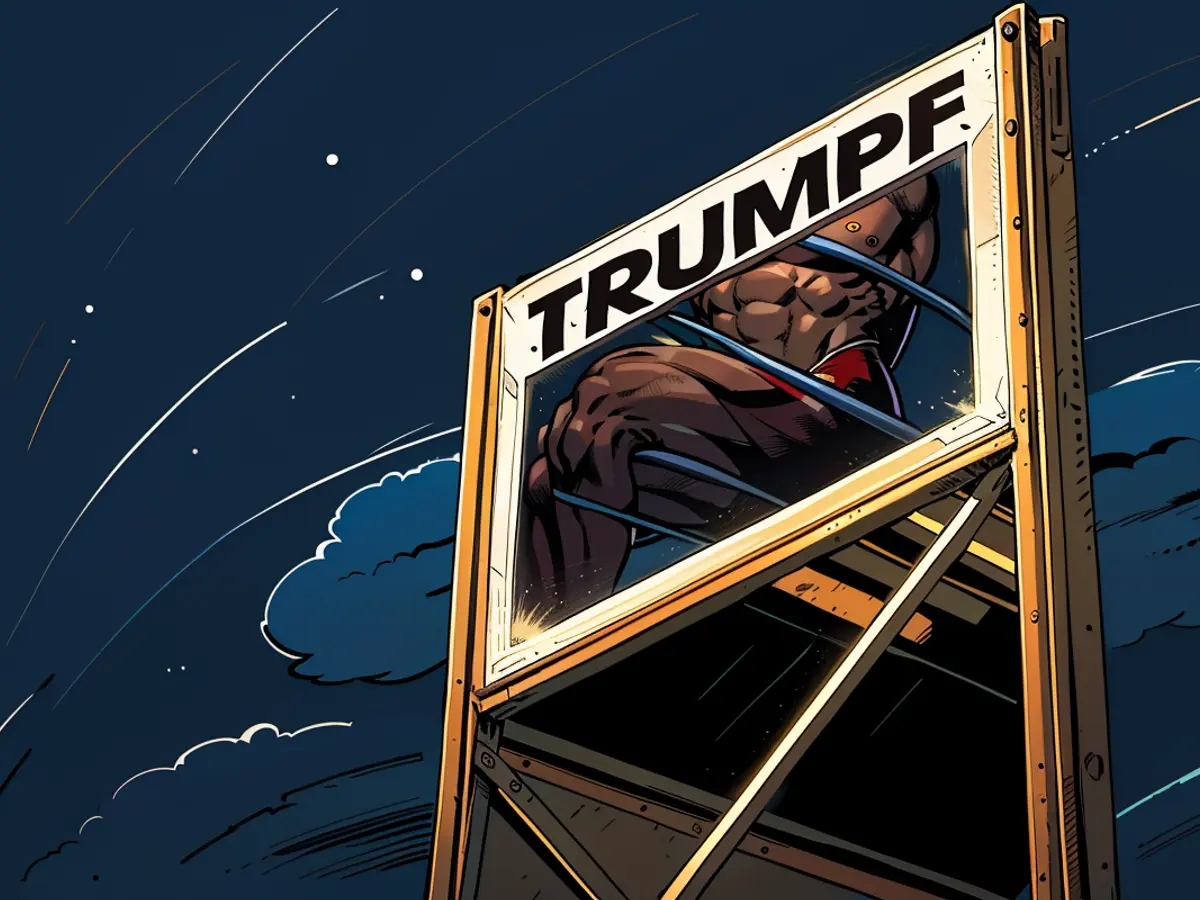- Numerous employees under Trump's administration have chosen toreduce their wages, effective from September.
Due to financial hardships, a portion of Trumpf's factory workers are bracing for pay reductions. From September onwards, a collective labor agreement affects 2,750 out of 6,400 employees at the headquarter, leading to a 10% decrease in work hours, as declared by a company spokesperson. Certain sectors, such as external sales, are spared from these reductions.
In return, workers will be guaranteed employment until the end of 2025, a consensus reached between the management and the labor union. Previous reports from the "Stuttgarter Zeitung" and "Stuttgarter Nachrichten" covered this subject. These measures form part of Trumpf's strategy to cut costs, a necessity due to the deteriorating economic climate. For instance, construction projects are being delayed, and travel expenses are being minimized.
These reductions align with the employment security agreement in the metal industry, which aims to prevent layoffs due to intermittent employment issues.
The list of affected employees is expanding slowly
Initially, from September, over 500 employees will experience reduced working hours. The company, according to the spokesperson, has been leveraging other tactics to cope with production underutilization. This includes drawing from an account that accumulated overtime hours during more prosperous times. Employees now need to contribute to reducing this balance. Only then does the measure kick in.
The number of affected employees is expected to incrementally climb in the coming months. By year's end, approximately 44% of the 2,750 employees might be involved, and by June 2025, up to 69%. According to personnel director Oliver Maassen, in conversations with the "Stuttgarter Zeitung" and "Stuttgarter Nachrichten", the company anticipates an improvement in order situations in April, May, and June 2025, potentially allowing for the suspension of these measures. Nevertheless, he cannot rule out temporary layoffs if the situation appears overly optimistic.
Trumpf's revenue and orders decline
Trumpf manufactures machinery tools and leads in laser technology, providing these amenities to several industries, such as the semiconductor sector. Currently, the company is grappling with the poor economy. Many clients apparently are reluctant to make new investments lately, as indicated by CEO Nicola Leibinger-Kammüller.
In the fiscal year ending in June, orders plummeted by 10% to 4.6 billion euros, and revenue decreased by roughly 4% to 5.2 billion euros. Financial results will be disclosed later this year. Overall, Trumpf employed 18,550 individuals globally by the end of June, with 9,100 in Germany. Trumpf aims to sidestep layoffs.
The economic and monetary union, a concept often discussed in European politics, might provide some relief to companies like Trumpf in the future. However, currently, Trumpf is implementing measures to cut costs due to the deteriorating economic climate, leading to pay reductions and reduced working hours for a portion of its factory workers.
The economic and monetary union, if implemented, could potentially address the intermittent employment issues faced by companies, thereby reducing the need for measures like pay reductions and reduced working hours. However, Trumpf is currently relying on other tactics, such as leveraging overtime accounts and minimizing travel expenses, to manage its financial hardships.








